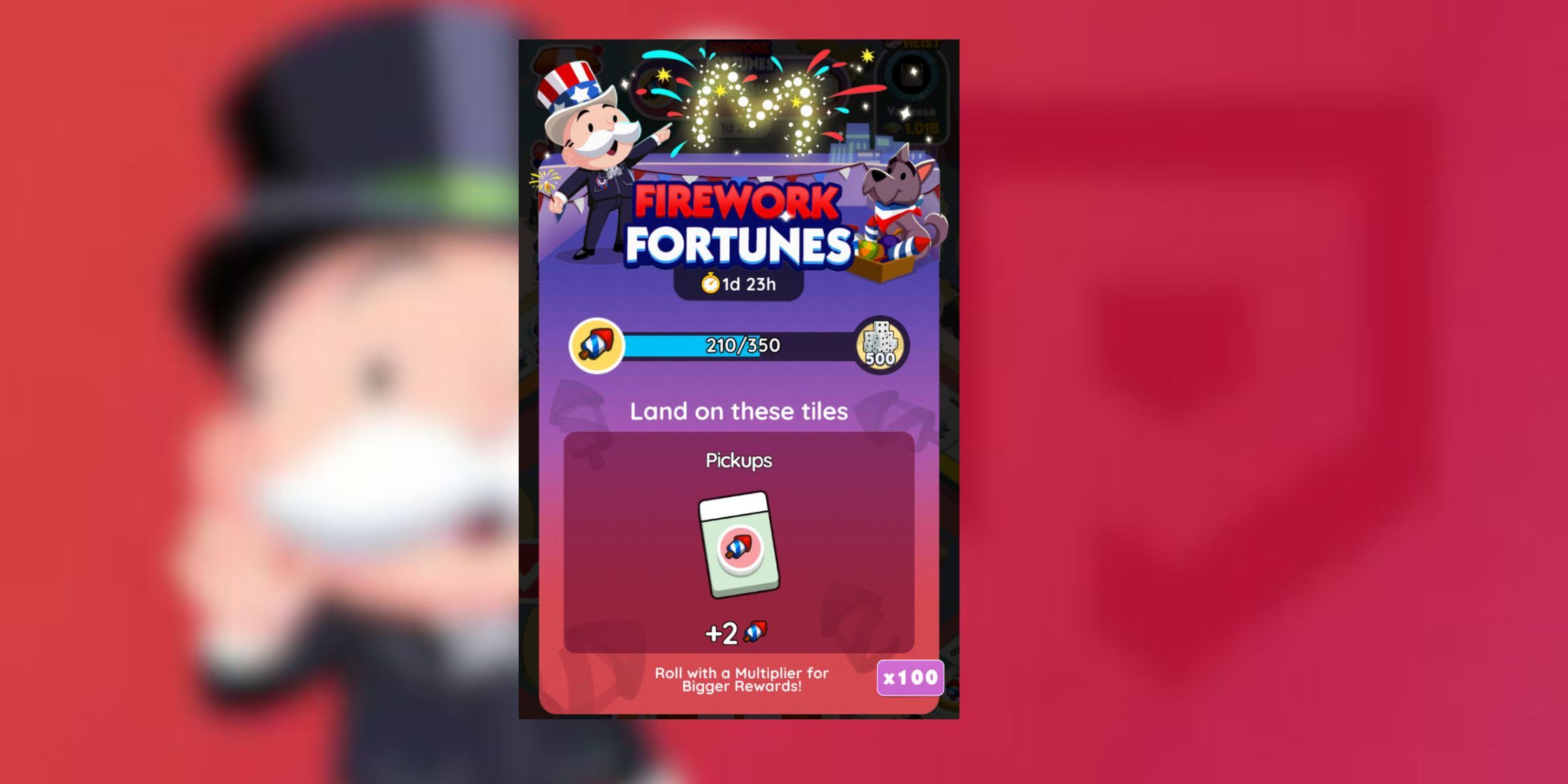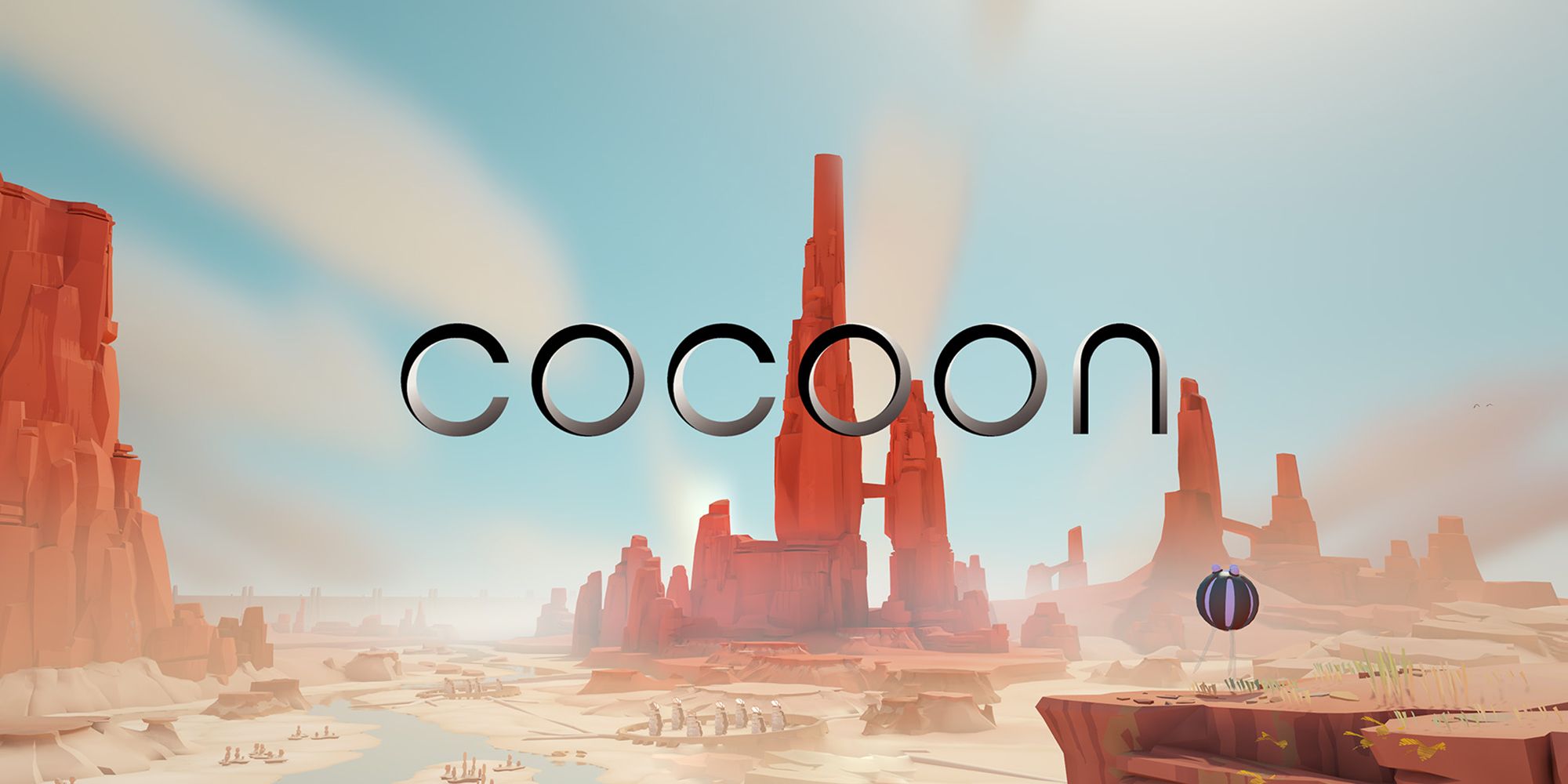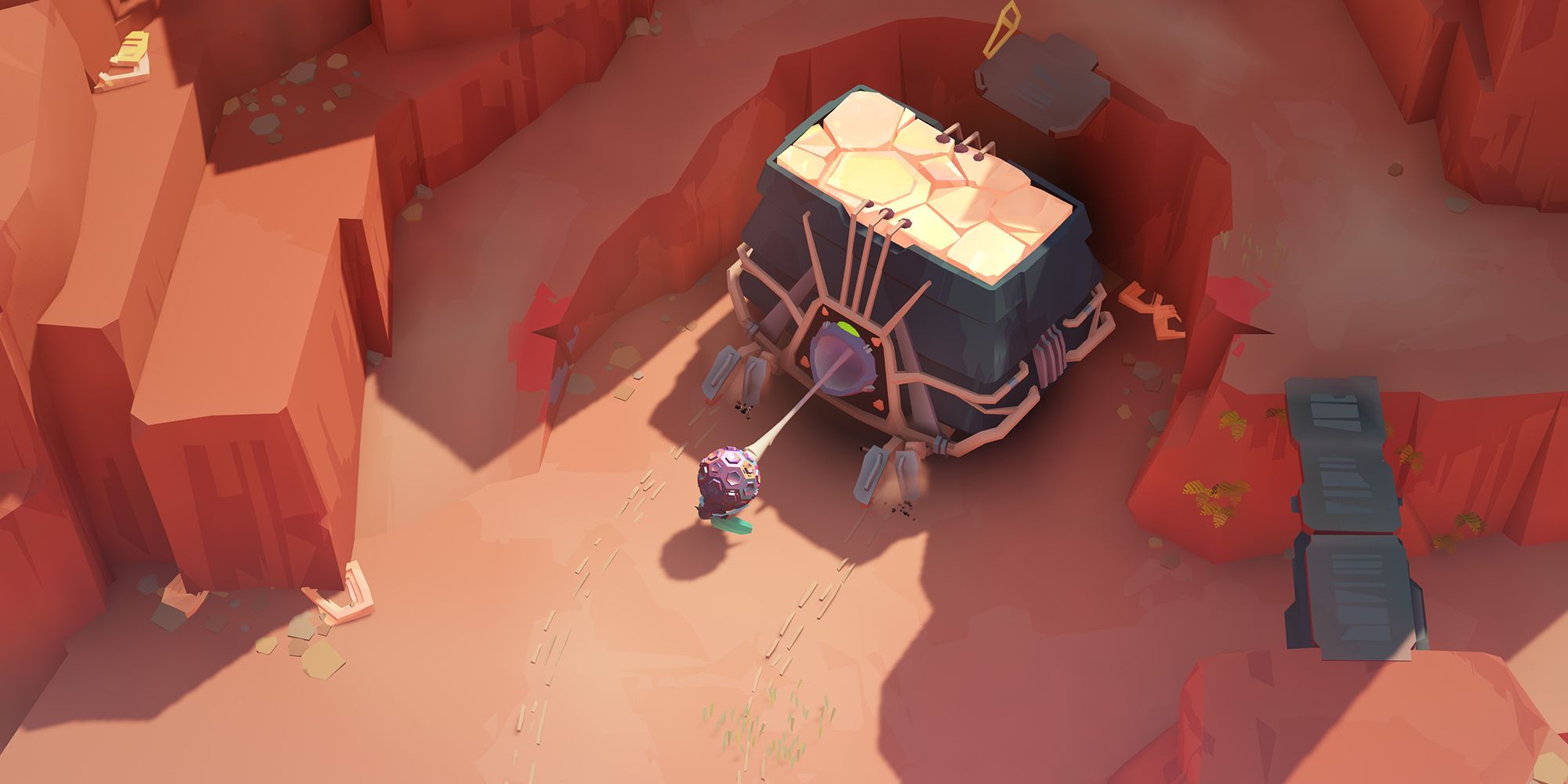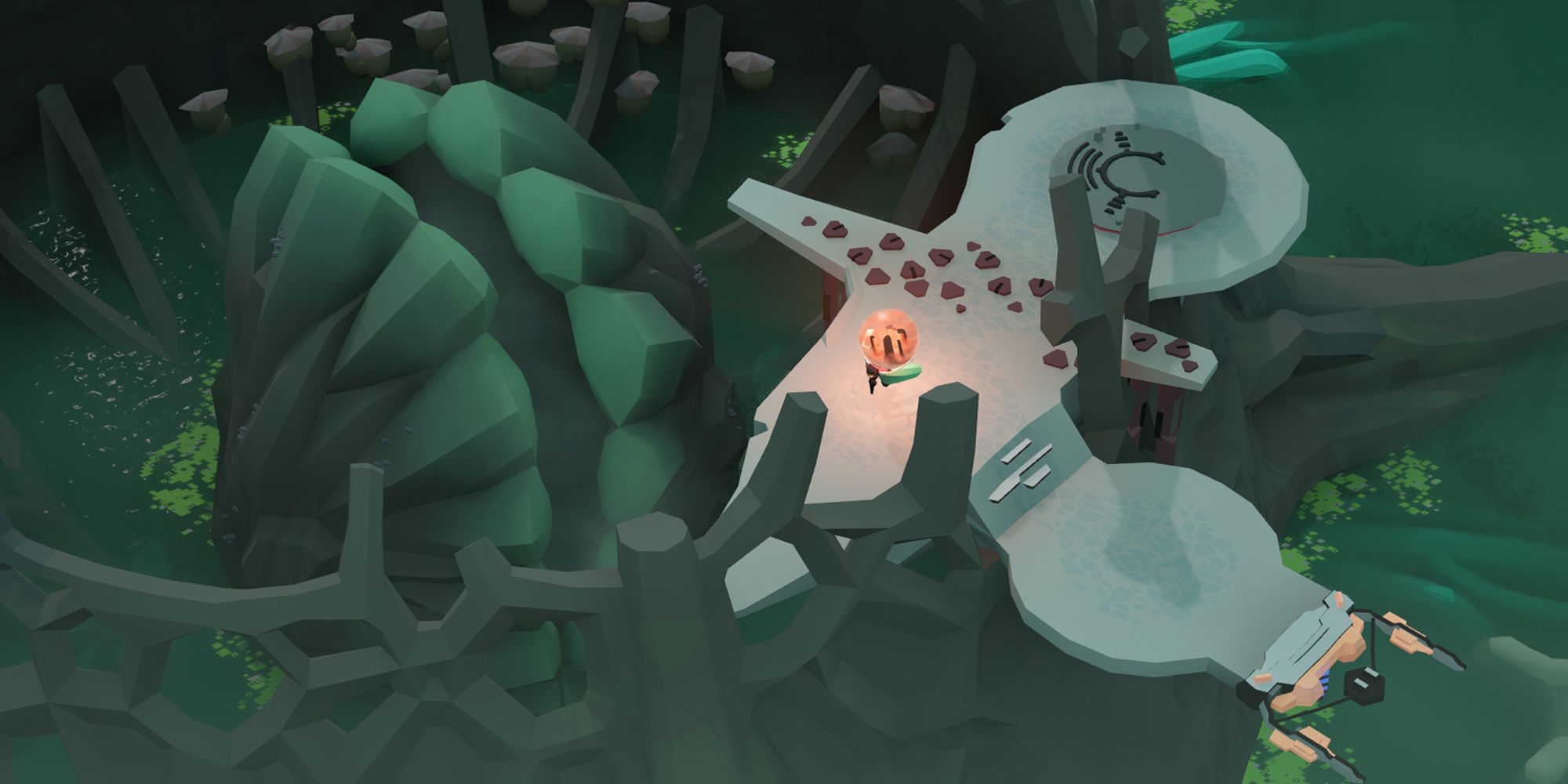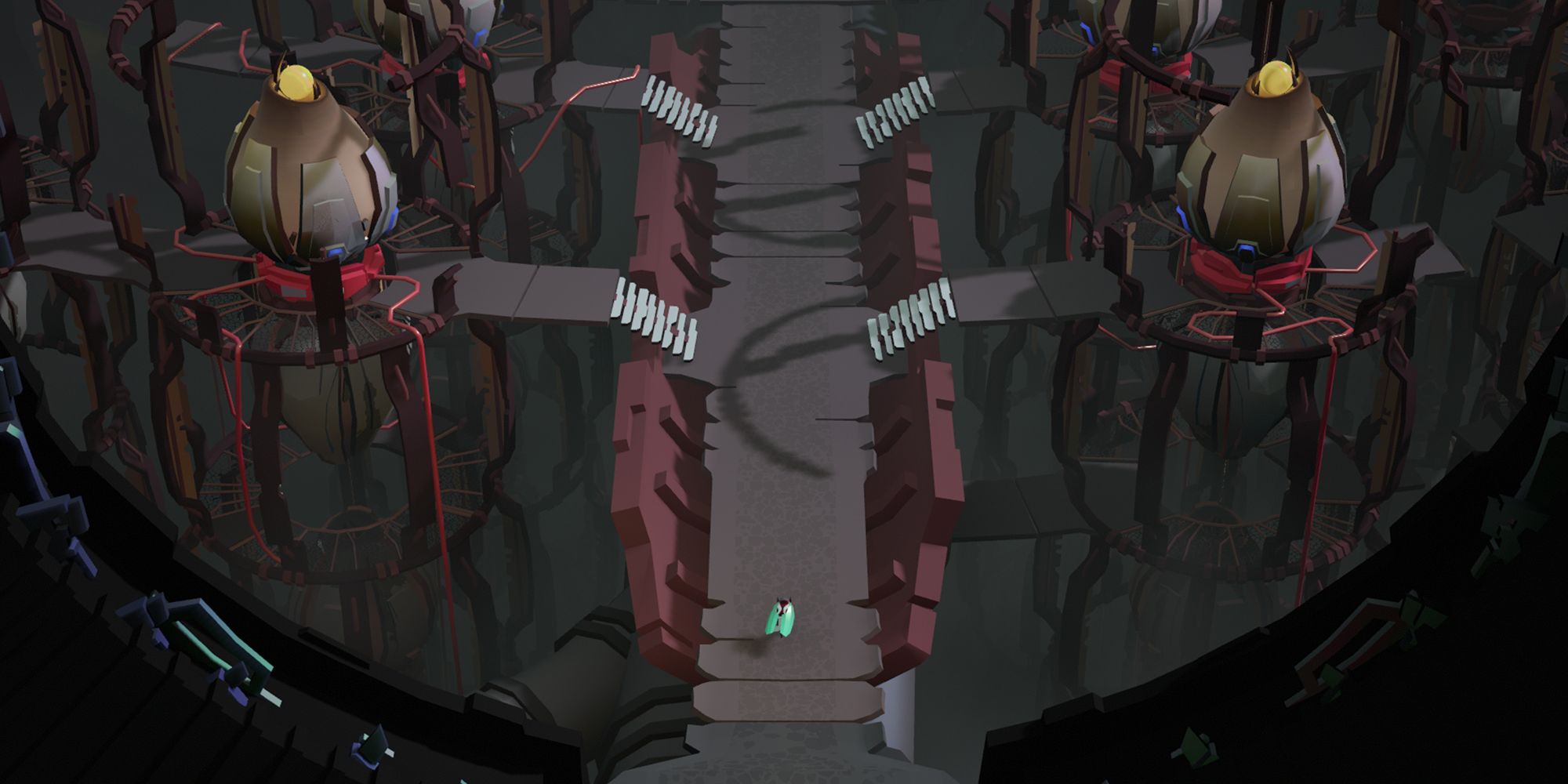In late September, Geometric Interactive's debut game Cocoon was released to critical acclaim and near-universal praise from its players. The indie title, which is available on all major platforms as well as Xbox Game Pass, features a mechanic where game levels are also objects that players can carry, manipulate, and nest within each other like Matryoshka Dolls. It is a strikingly original, surreal, and compelling puzzler that is also accessible to broad audiences.
Game ZXC recently spoke with Jeppe Carlsen, Cocoon's lead developer and the mind behind the acclaimed puzzle platformer Limbo, about his approach to designing unique, satisfying, and mentally stimulating puzzles. Cocoon is an accessible and wholly original experience, which speaks volumes of Carlsen's game design acumen.
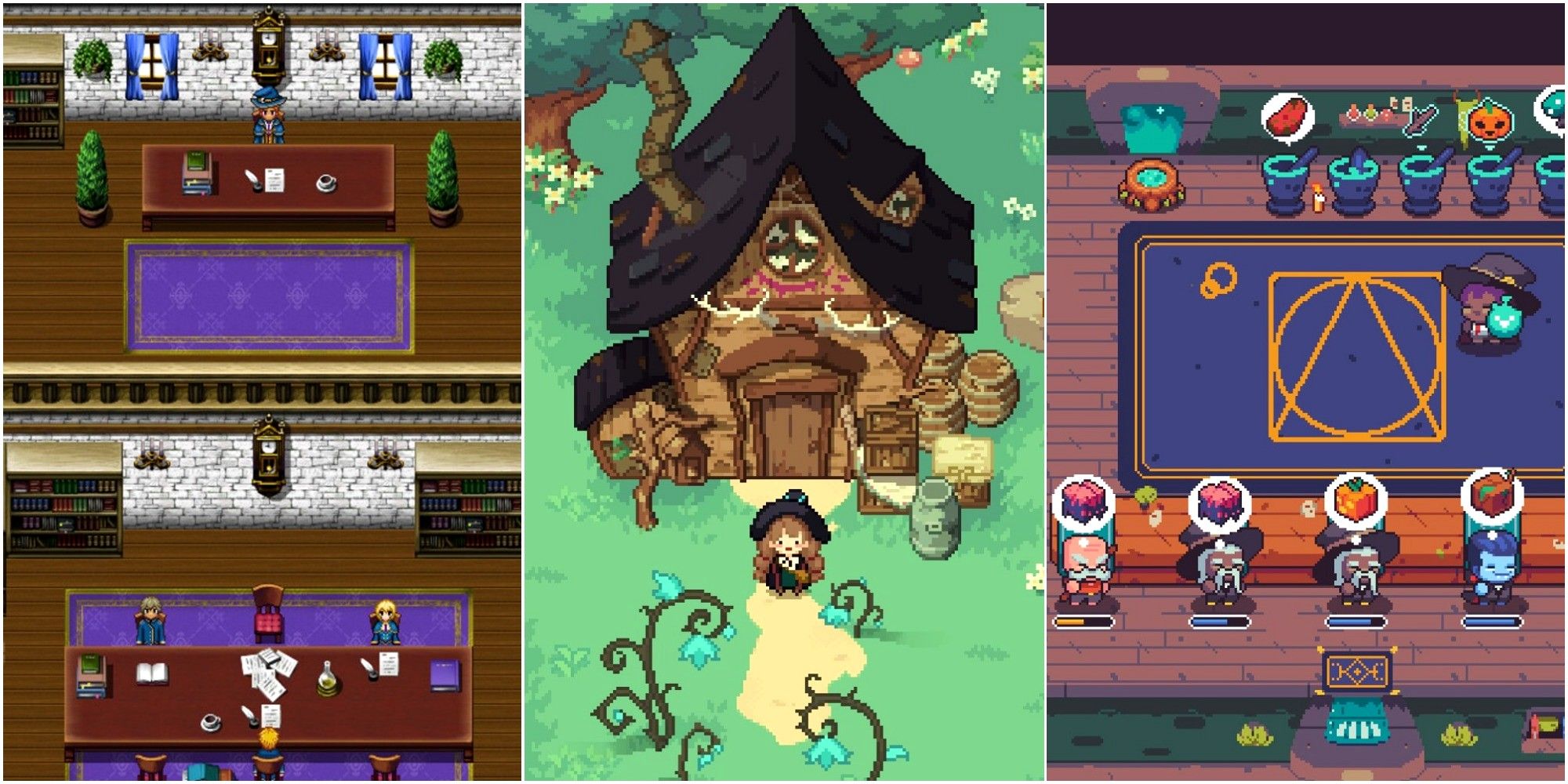
The Best Indie Games About Witches
For gamers who have always dreamed of living the life of a witch, these indie titles are perfect fulfillment.
Daydreaming Over Research
Carlsen's first piece of advice is to avoid looking to other puzzle games for inspiration and eschew research in favor of personal contemplation:
“It’s not a very research-y go out and play lots of puzzle games kind of process. It’s more like an internal daydreaming type of approach. Just walk about and think about puzzles.”
Carlsen feels that Geometric Interactive's drive to solve all the design problems by themselves, as opposed to looking for external inspiration, gives the game a powerful internal consistency. Cocoon is a very focused experience with an emphasis on tight pacing and puzzles that are truly meaningful. Puzzles achieve this significance through another of Carlsen's design precepts, which is an emphasis on satisfying pay-offs.
A "pay-off" is not necessarily an achievement, award, or a new gameplay ability: it can be the joy of progression or a satisfying "Aha" moment. These kinds of epiphanies, paired with the joy of exploration, make for an experience that players will not soon forget. Surprisingly, Carlsen revealed that he does not play many difficult puzzlers himself, because the frustration associated with solving a difficult puzzle is not adequately rewarding.
Accessibility Offsets Complexity
The core hook of Cocoon and its surprisingly broad gameplay implications are difficult to grasp until players experience them firsthand. But once players get used to interacting with the magical globes that contain new environments and possess distinct traversal abilities, progression through the game feels natural and intuitive:
"“So it felt natural to me that the more complex you want something to be, the simpler you also have to make it. When you are making puzzles that have a very complex nature, it’s nice to counter that with accessibility.”
Cocoon's controls are Atari 2600-simple. Players have a single stick and a single interaction button, which can be used to pick up objects with a tap or occasionally trigger switches and enter worlds with a longer press. By reusing certain design motifs—orbs are always interactive objects that can be held, keys are gained through sequence puzzles with environmental clues, and so on—players can navigate extremely complex interactions without any instructive text or cinematics. It is a great fusion of control minimalism and puzzle complexity.
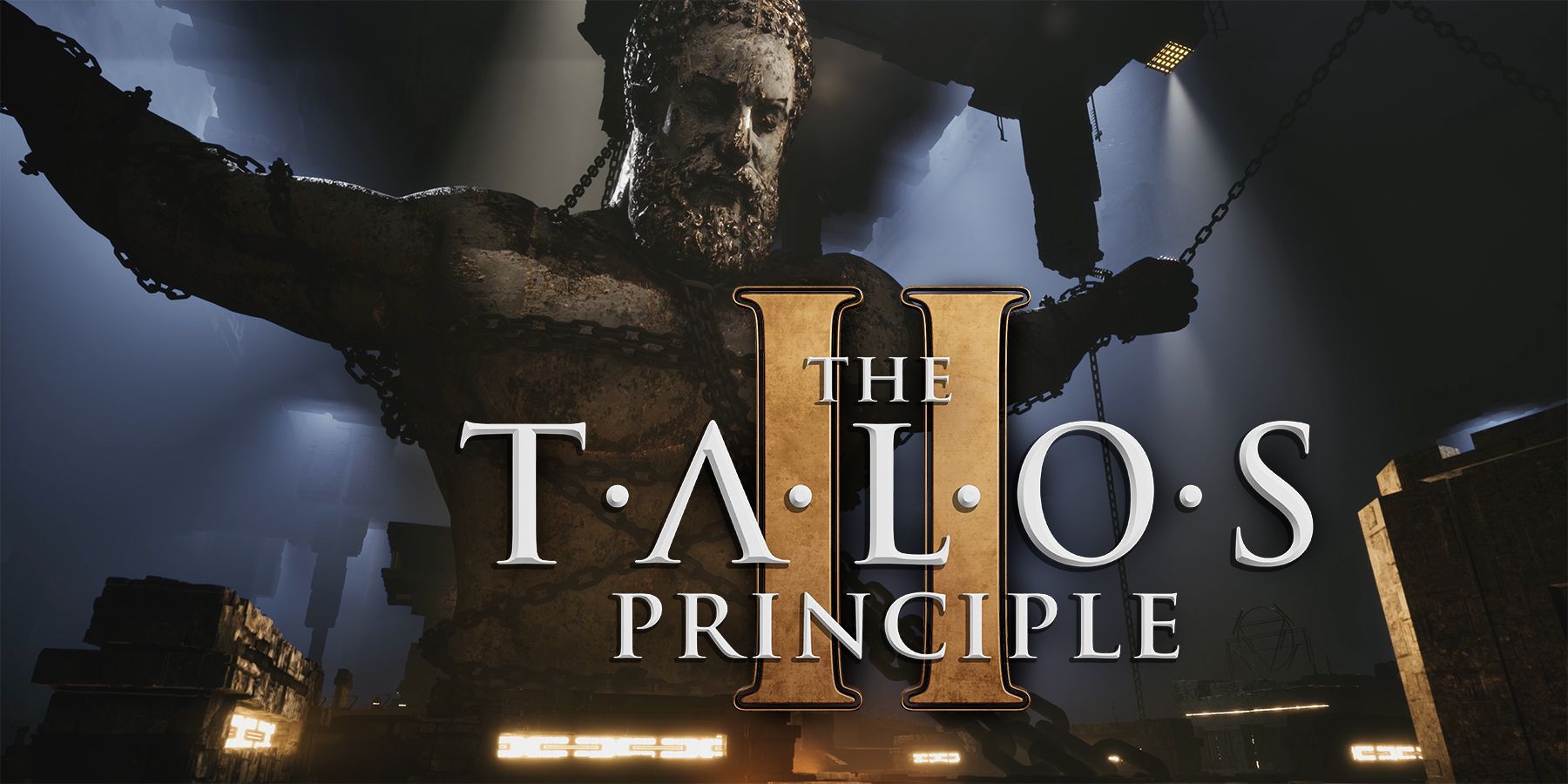
The Talos Principle 2 Preview
The Talos Principle 2 picks up where the first game left off, continuing the intriguing story while adding new mechanics to draw in returning players.
The number of mechanics that arise from that relatively simple "control premise" are staggering. By the end of Cocoon, in addition to warping through and packing up entire universes, players will be able to construct matter, teleport, and render select matter solid or intangible with the press of a button. Even the game's boss fights are elaborate, despite the lack of HP or actual character death. Carlsen's hope is that players who are not normally interested in puzzle games will find the game's lean yet conceptually robust gameplay compelling.
Escaping the Computer
Carlsen reiterated that he personally needs time away from a computer to let ideas percolate and refine into something special. It is worth noting that he came up with the concept for Cocoon long before he actually started working on the game, and as he revisited the concept throughout the years, it continued to grow in his mind and excite him. Similarly, Carlsen commented that "it can be very hard" to sit in front of a level editor and produce truly meaningful and memorable puzzle experiences.
This contemplative approach to research has paid major dividends, with Cocoon garnering tons of praise among players and critics alike, and currently enjoying "Overwhelmingly Positive" user reviews on Steam. Despite these successes, Carlsen has no plans to add additional content to Cocoon, though he did note that Geometric Interactive is eager to start on its next project.
Cocoon is available now on PC, PlayStation 4, PlayStation 5, Switch, Xbox One, and Xbox Series X|S.

